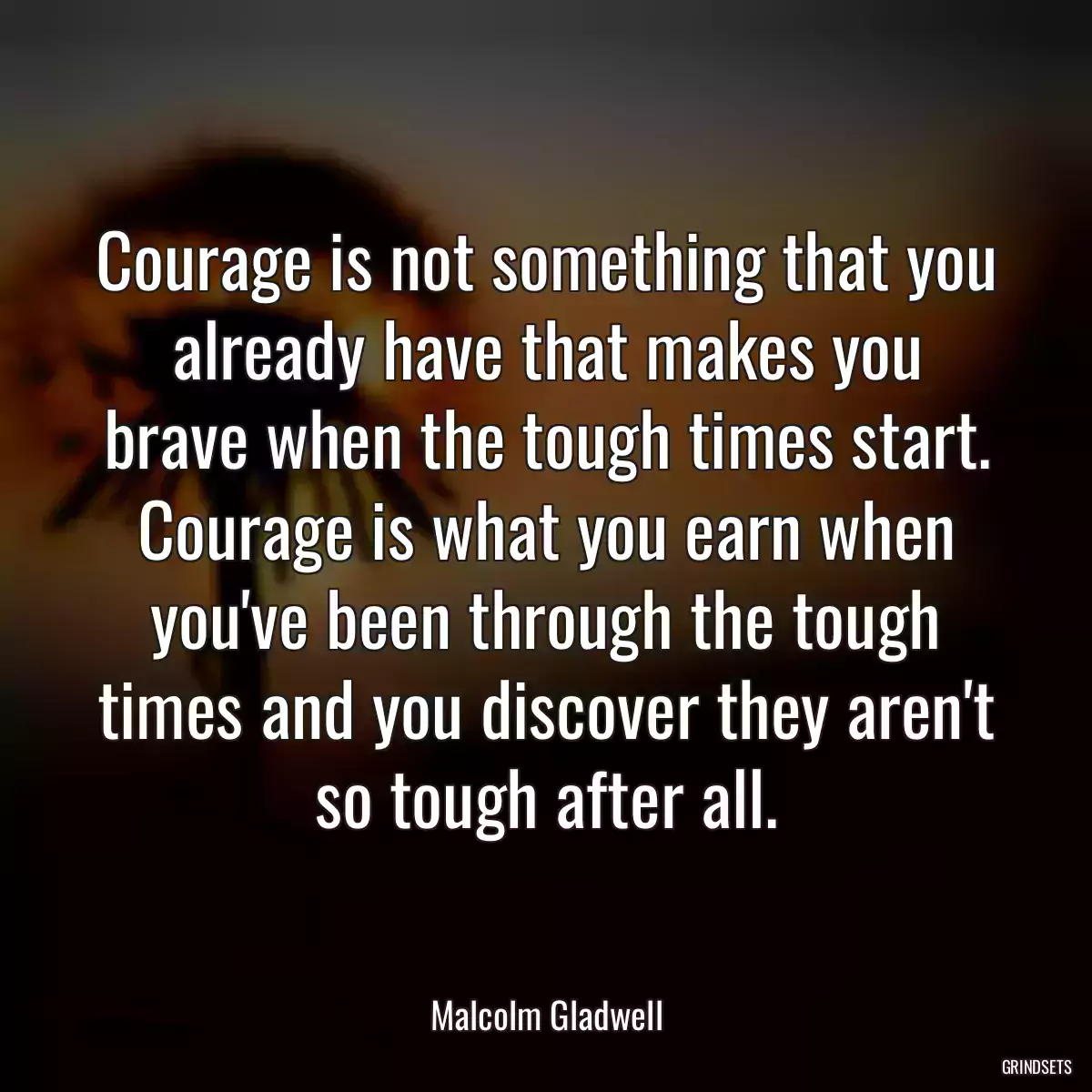
Quotes Malcolm Gladwell - page 3
Find dozens of Malcolm Gladwell with images to copy and share.

What a gifted child is, in many ways, is a gifted learner. And what a gifted adult is, is a gifted doer. And those are quite separate domains of achievement.
Achievement is talent plus preparation
Achievement is talent plus preparation. The problem with this view is that the closer psychologists look at the careers of the gifted, the smaller the role innate talent seems to play and the bigger the role preparation seems to play.
You may also like
I'm someone who can provide an intellectual framework, but I can't tell people who are trying to sell Product X how to do that because I don't know, and I would be faking it if I attempted to step into that role.
Acquaintances represent a source of social power, and the more acquaintances you have the more powerful you are.
Our acquaintances—not our friends—are our greatest source of new ideas and information. the internet lets us exploit the power of these kinds of distant connections with marvellous efficiency.
Instead of thinking about talent as something that you acquire, talent should be thought of as something that you develop.
What interests me about fiction is plot. And what interests me about plot is whether someone tells a story that moves me within the constraints of storytelling. And I have narrowly defined storytelling.

The particular skill that allows you to talk your way out of a murder rap, or convince your professor to move you from the morning to the afternoon section, is what the psychologist Robert Sternberg calls "practical intelligence." To Sternberg, practical intelligence includes things like "knowing what to say to whom, knowing when to say it, and knowing how to say it for for maximum effect.
My highest compliment is when someone comes up to me to say, "My 14-year-old daughter, or my 12-year-old son read your book and loved it." I cannot conceive of a greater compliment than that - to write something that as an adult I find satisfying, but also that manages to reach a curious 13- or 14-year-old.
[Research] suggests that what we think of as free will is largely an illusion: much of the time, we are simply operating on automatic pilot, and the way we think and act – and how well we think and act on the spur of the moment – are a lot more susceptible to outside influences than we realize.
The nature of athletic celebrity is increasingly moving away from the actual field of play.
I'm convinced that ideas and behaviors and new products move through a population very much like a disease does.
The conventional explanation for Jewish success, of course, is that Jews come from a literate, intellectual culture. They are famously "the people of the book." There is surely something to that. But it wasn't just the children of rabbis who went to law school. It was the children of garment workers. And their critical advantage in climbing the professional ladder wasn't the intellectual rigor you get from studying the Talmud. It was the practical intelligence and savvy you get from watching your father sell aprons on Hester Street.
A study at the University of Utah found that if you ask someone why he is friendly with someone else, he’ll say it is because he and his friend share similar attitudes. But if you actually quiz the two of them on their attitudes, you’ll find out that what they actually share is similar activities. We’re friends with the people we do things with, as much as we are with the people we resemble. We don’t seek out friends, in other words. We associate with the people who occupy the same small, physical spaces that we do.
Bad improvisers block action, often with a high degree of skill. Good improvisers develop action.
If you work hard enough and assert yourself, and use your mind and imagination, you can shape the world to your desires.
You may also like
